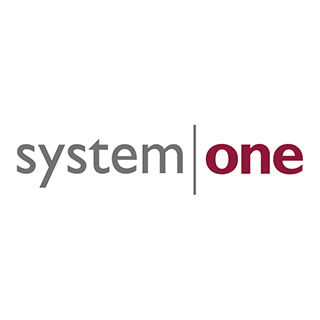
Process Control Engineer/DCS Engineer from System One
Houston, TX 77015
About the Job
System One is seeking a Process Control Engineer/DCS Engineer for a Direct Hire opportunity located at an East Houston/Channelview facility.
Education Qualifications
- Required Bachelor's Degree in Chemical or Electrical Engineering is required for this role.
Experience Qualifications
- Required 3+ years of related experience
Skills and Abilities
- The ability to learn and implement the skills required for Honeywell Experion PKS operation, programming, and maintenance is required.
- The ability to learn and implement the skills required for Rockwell PlantPAX operation, programming, and maintenance is required.
- The ability to learn and implement the skills required for Honeywell Safety Manager SC operation, programming, and maintenance is required.
Licenses and Certifications
- TUV certification Required
Essential Functions
- Owns and acts as the main focal point for all Process Control related scope for Houston site
- Manages all the Maintenance related activities for the upkeep of various control systems and the hardware components associated with it, such as network servers, marshalling cabinets, etc.. This includes understanding maintenance requirements for each system, planning ahead for upgrades / changes and executing.
- Works with 3rd parties and/or vendor if work needs to be done by an external resource·
- Maintains communication and relationship with process automation provider Honeywell. This includes involving them when needed, to support maintenance activities and/or projects. Managing any external resources provided by them·
- Works closely with site Maintenance organization, to define, agree, plan and execute jointly any hardware related modifications needed. This includes the servers, workstations, process controllers and I/O modules as well as local PLCs, Local HMIs, etc.
- Owns, maintains and manages the site Master I/O database / list·
- Collaborates with Mechanical Integrity / Process safety to plan and execute periodic testing of interlock and safeguarding systems·
- Plans, coordinates and executes any upgrades that need to be done during a plant shutdown·
- Stays updated with latest industry updates and technologies
- Writes site Process Control Basic Design Infrastructure document which will serve as Site Specific Specification for major projects and / or work that needs to be done by 3rd parties and vendors
- Projects:
1. Support in-house projects and MOCs to develop process control strategies and concepts to be applied.
2. Write process control narratives for new or modified control loops. This includes vendor provided controls for stand-alone units of operations, like Heaters, Compressors, Detectors, etc
3. Define any hardware scope needed as a result of a project or MOC, such as any additional I/O cards, network modules, servers, Marshaling cabinets
4. For larger projects: - Work closely with contractor and/or vendor team to define the process control scope - Check, verify, approve process control related deliverables
5. Make changes to Alarm system à changing hardcoded set points, priorities - E&I Support: The following activities are not Must-Haves, but will be a plus
1. Occasionally the Process Control engineer will be required to support site or the project team with activities such as: - Loop Sheets - Verifying availability in Junction Boxes for additional I/Os - Troubleshooting instrument maloperation, such as Control valves, flow meters, detectors, etc - Instrument Configuration - Wire specification - Support Electrical group with troubleshooting electrical equipment / component that have either Instrumentation or a DCS interface - Support with defining DCS related scope of Motor Control Centers
2. Depending on site workload, the process control engineer may be expected to support a project in regards with Instrumentation scoping and selection
Working Conditions/Physical Demands
- Walking. Moving about on foot to accomplish tasks, particularly for long periods of time, up to 12 hours per day.
- Sitting. Working from a seated position for up to 12 hours per day.
- Climbing. Ascending or descending ladders, stairs, ramps and the like, using feet and legs and/or hands and arms one to two times per day.
- Balancing. Maintaining body equilibrium to prevent falling and walking, standing or crouching on narrow or slippery surfaces.
- Stooping. Bending body downward and forward by bending spine at the waist.
- Kneeling. Bending legs at knee to come to a rest on knee or knees.
- Crouching. Bending the body downward and forward by bending legs and spine.
- Reaching. Extending hand(s) and arm(s) in any direction.
- Pushing. Using upper extremities to press against something with steady force, exerting up to 25 pounds of force occasionally, and/or up to 15 pounds of force frequently, and/or up to 10 pounds of force consistently to move objects forward, downward or outward.
- Pulling. Using upper extremities to exert up to 25 pounds of force occasionally, and/or up to 15 pounds of force frequently, and/or up to 10 pounds of force consistently to draw, haul or tug objects in a sustained motion.
- Lifting. Raising objects up to 25 pounds occasionally, and/or up to 15 pounds frequently, and/or up to 10 pounds consistently from a lower to a higher position or moving objects horizontally from position-to-position.
- Grasping. Applying pressure to an object with the fingers and palm.
- Possible subject to environmental conditions. Activities could occur inside and outside.
- Subject to extreme heat. Temperatures above 100 for periods of more than one hour.
- Subject to vibration. Exposure to movements of the extremities or whole body. Operate/drive utility vehicle.
- Subject to hazards. Includes a variety of physical conditions, such as proximity to moving mechanical parts, moving vehicles, electrical current, exposure to high heat or exposure to chemicals.
- Must be able to wear appropriate PPE for tasks as required. FRC uniform, hard hat, safety toe work boots, safety glasses, gloves etc.
